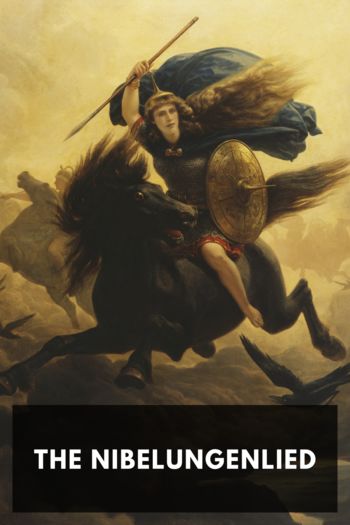The Trials of Radclyffe Hall, Diana Souhami [best sales books of all time .TXT] 📗

- Author: Diana Souhami
Book online «The Trials of Radclyffe Hall, Diana Souhami [best sales books of all time .TXT] 📗». Author Diana Souhami
‘God,’ she gasped, ‘we believe; we have told You we believe … We have not denied You, then rise up and defend us. Acknowledge us, oh God, before the whole world. Give us also the right to our existence!’*
THE END
* Richard von Krafft-Ebing in Psychopathia Sexualis, in the case study of ‘S’, quotes from her diary:
I relied on God, that one day my emancipation would come … O God, Thou Allpitying, Almighty One! Thou seest my distress; Thou knowest how I suffer. Incline Thyself to me; extend Thy helping hand to me, deserted by all the world.
S was a Hungarian countess who ‘knew how to imitate a scrotum with handkerchiefs or gloves stuffed in the trousers’ and who to the chambermaids explained menstrual blood on her sheets as ‘haemorrhoidal’.
THE TRIAL OF RADCLYFFE HALL
19
Aspects of sexual inversion
Newman Flower at Cassell had first option on The Well of Loneliness. His hopes were high for a new novel by Radclyffe Hall after the success of Adam’s Breed. A pious man, a devout Christian and a keen gardener, he had a precious manner and was the author of sentimental essays and poems. On 10 April 1928 Radclyffe Hall penned him a letter he must have sweated to receive. Were he to publish, she ‘could not consent to one word being modified or changed’. His was to be a disciple’s role. He must ‘stand behind this book to the last ditch,’ she told him, ‘go all out on it for the sakes of those for whom I have written’.
Having attained literary success I have put my pen at the service of some of the most persecuted and misunderstood people in the world. In a word I have written a long and very serious novel entirely upon the subject of sexual inversion … So far as I know nothing of the kind has ever been attempted before in fiction.
It is doubtful whether Radclyffe Hall and Una, Natalie Barney, Romaine Brooks, Winnaretta Singer, Toupie Lowther, Colette, Evelyn Irons, Gabrielle Enthoven, Teddie Gerrard, Tallulah Bankhead and the rest, with their fine houses, stylish lovers, inherited incomes, sparkling careers and villas in the sun, were among the most persecuted and misunderstood people in the world. Nor did they need an apologist for their affairs, loves and sexual escapades.
Newman Flower replied to Audrey Heath within days. Radclyffe Hall was a great artist, he took his hat off to her, it was a fine book, but not one he could publish. It would harm his list. William Heinemann’s director, Charles Evans, then said no. He viewed the book as propaganda, ‘and inevitably the publishers of it will have to meet not only severe criticism but a chorus of fanatical abuse which although unjustifiable may nevertheless do them considerable damage. That consequence we are not prepared to face.’ Martin Secker returned the typescript a week later. It was not a commercial proposition, he said, but he would happily give Radclyffe Hall a contract for whatever she wrote next.
Audrey Heath then offered the book to Jonathan Cape. Cape knew his fellow publishers had backed off because of its lesbian theme. He did not rate Radclyffe Hall’s literary style, nor did he want ‘to strike an attitude – portrait of a publisher doing something daring and heroic’, but he respected her sincerity and sales figures and he liked innovative work. By 1927 his list included Ernest Hemingway, T. E. Lawrence, Sinclair Lewis, Edna St Vincent Millay and Mary Webb.
‘I wrote the book from a deep sense of duty’, Radclyffe Hall told him. ‘I am proud indeed to have taken up my pen in defence of those who are utterly defenceless, who being from birth a people set apart in accordance with some hidden scheme of Nature, need all the help that society can give them.’ Cape lunched with her, Una and Audrey on 8 May at the Berkeley. He outlined his plan to publish The Well of Loneliness in a sober manner that suggested a serious subject, of no interest to the prurient. The book would have a black binding and plain jacket and be priced at twenty-five shillings – about four times more than the average novel. He proposed a cautious print run of 1,250 copies to test public response. He offered Radclyffe Hall an advance of £500 against royalties and encouraged her to pursue a preface from Havelock Ellis.
A hitch about liability for legal costs in case of trouble gave her ‘an agitated & worried evening and night’. It was then agreed that she and Cape would share any such liability. She signed the contract at his office at midday on Friday 11 May. She then drove with Una to Brixton to chivvy Havelock Ellis. He had only read part of the manuscript, but said he was confident the rest would please him equally. He would give a short appraisal for Cape to use.
John and Una went back to Holland Street to ‘a peaceful and happy evening’. A nightingale sang in the garden opposite their house. They went to mass and visited Ladye’s catacomb. John bought four hats for Una from Adèle’s and was herself fitted for new suits at Weatherills. Ellis’s 150-word appreciation, when it came, she thought ‘perfect’. ‘So far as I know,’ he wrote of The Well of Loneliness,
it is the first English novel which presents, in a completely faithful and uncompromising form, various aspects of sexual inversion as it exists among us today. The relation of certain people – who, while different from their fellow human beings, are sometimes of the highest character and the finest aptitudes – to the often hostile society in which they move,





Comments (0)